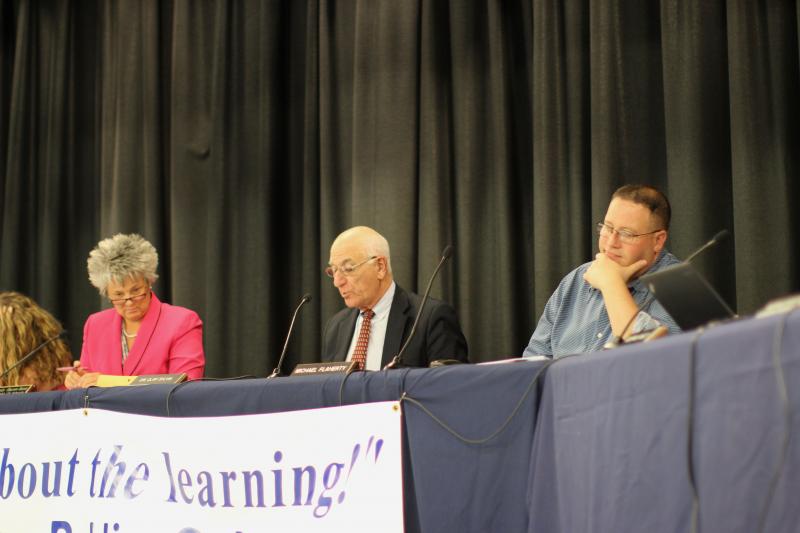Superintendent nears approval for identified 'goals'
It’s two down and two (or three) goals to go for Dr. Kimberly Shaver-Hood.
On Wednesday, Shaver-Hood presented five goals to the School Committee for the next year as part of the requirements for the position. The committee asked Shaver-Hood to be more specific with two--one of which involves increasing academic growth for students, and one that aims to build relationships between the superintendent and the community.
In Massachusetts, superintendents are required to submit a yearly set of goals to their school committee, with the results of those goals weighing into their yearly evaluation. Following a public evaluation, which includes a report on the achievement of the superintendent’s stated goals among other criteria, pay raises are determined.
Committee member Geoff Swett said goals like the ones up for resubmission should become more specific because they’re similar to the goals stated elsewhere as part of superintendent’s responsibilities.
“If our superintendent, as we all hope, does really well, then technically, mathematically, we’d be double-counting that achievement,” said Swett, adding that the same would be true if the superintendent didn’t do well in a particular area.
In the goal that involved student achievement, committee members asked Shaver-Hood to quantify the increases she’d expect to see.
“I think we need to have a benchmark, because she needs to have a guideline,” said School Committee Chair Cliff Sylvia. “A goal should not be something that is normally done anyways.”
Shaver-Hood said she’d rework both the student achievement goal and the community relations goal to make them more specific.
Sylvia said once all Shaver-Hood’s goals are approved, the committee will “weigh” the goals, placing a level of importance on each as part of a whole. According to Swett, 60 percent of a superintendent’s evaluation is composed of performance in relation to the goals.
One of the two goals approved by the committee involved the allocation of resources, including technology, as well as school safety. The other approved goal involved increasing the leadership capabilities of educators within the school system.
Sylvia deemed a fifth goal, which involved managing the district’s budget, unnecessary as that is already a responsibility of the committee.
“We really don’t need goal number five because it is what we do,” said Sylvia.
The committee agreed to drop the goal, with only one committee member voting in opposition.
Swett said he’d like to see the committee give Shaver-Hood the opportunity to create another goal in its place.
“The fewer the goals are, the more important those goals become,” said Swett. “I do think we should give the superintendent the opportunity (to come up with another goal).”















